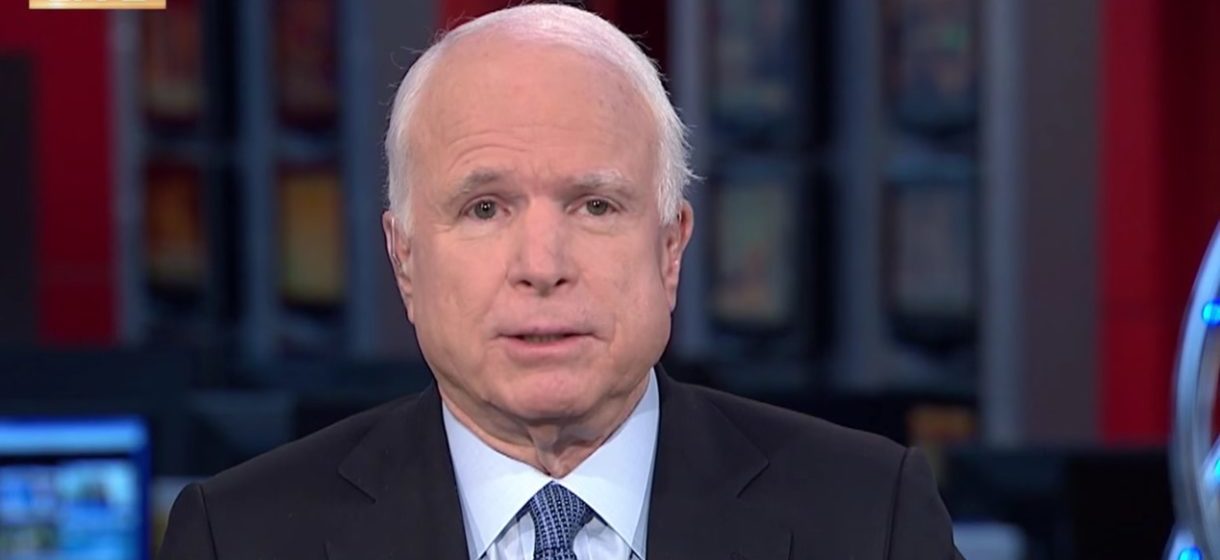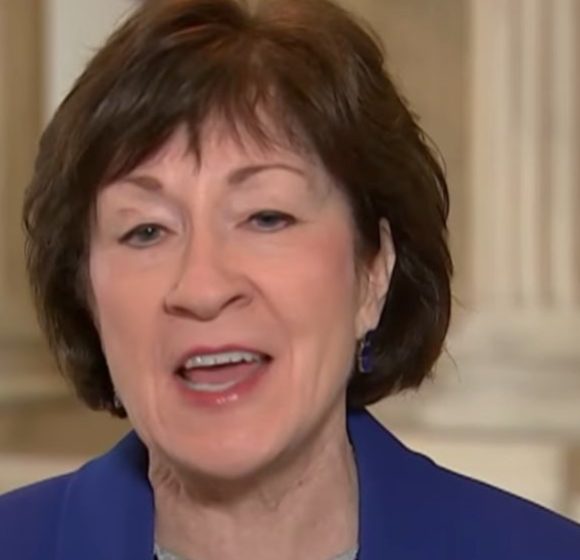For many Americans who have been following the relentless efforts of the Republican-controlled Congress to “repeal and replace” the Affordable Care Act, the news has often been fast and furious and the legislative process nothing short of farcical if not downright depressing.
After several years of empty promises, Republicans in the House and Senate have pulled out all the stops in recent months trying to finally make good on their years-long campaign promise to dismantle Obamacare—culminating this month in the GOP’s most ruthless repeal scheme yet: the Graham-Cassidy bill.
Over 21 million Americans will lose health insurance in the next few years if Graham-Cassidy becomes law, according to the Brookings Institution, up to 32 million by 2026.
The bill, co-sponsored by Republican Sens. Lindsey Graham (SC) and Bill Cassidy (LA), would actually take federal money away from states that covered people under the ACA and give it to states that did not, by replacing the ACA’s Medicaid expansion, tax credits, and cost-sharing subsidies (all of which currently help millions of Americans pay for coverage) with a block grant program touted by supporters as giving states “more flexibility” in how they spend federal aid dollars.
NEW: 4th independent analysis of Graham Cassidy says the same as the first 3.
And opposite of what sponsors claim.https://t.co/KJ9SZ1Ygmi
— Andy Slavitt (@ASlavitt) September 21, 2017
Public understanding of the GOP’s last-ditch effort to blow up Obamacare with a simple majority vote before a September 30th deadline has been, in large part, due to the excellent and unrelenting work of journalists, activists, House and Senate Democrats, and, now, late-night talk show host Jimmy Kimmel.
Kimmel not only recently lambasted the bill’s co-sponsor, Sen. Bill Cassidy of Louisiana, in front of million of TV viewers, for Cassidy’s false promise to deliver full and affordable health care to all on Kimmel’s show back in May but he has continued to use his show’s opening monologues to lay out the disastrous contours of the Graham-Cassidy bill.
His near nightly health care tutorials contrast sharply with the rosy assurances made by prominent Republicans, including Vice President Mike Pence and President Donald Trump, that lower costs and better coverage will materialize despite the the bill’s own provisions to the contrary.
“I guarantee [Trump] doesn’t know anything about this Graham-Cassidy bill He doesn’t know the difference between Medicare and Medicaid. He barely knows the difference between Melania and Ivanka,” Kimmel joked Thursday night.
Like many Americans, Kimmel finally arrived at the painful realization that Republicans never really wanted to improve health care for millions of ordinary Americans in the first place, and he did so after having faced a health care crisis of his own—when his newborn son had to undergo open heart surgery earlier this year.
Senator John McCain Does It Again
On Friday afternoon, Republican Sen. John McCain officially added his name to the long list of experts, medical groups and organizations, governors, comedians, and thankfully, senators, who now oppose the GOP’s most destructive repeal proposal to date.
Sen. McCain announced that he could not “in good conscience” support the Graham-Cassidy bill, leaving Republican leaders with little hope of passing the bill in the Senate
Sen. McCain also reiterated his belief that Republicans and Democrats could come up with a better fix for Obamacare’s shortcomings by working together, pointing to recent bipartisan talks, led by Sens. Lamar Alexander (R-TN) and Patty Murray (D-WA), to shore up insurance markets under Obamacare.
Despite intense pressure from GOP leadership, Sen. McCain cast the decisive “no” vote in a dramatic late-night repeal vote in July. When asked why he did it, McCain said: “Because I thought it was the right thing to do.”
“I would consider supporting legislation similar to that offered by my friends Senators Graham and Cassidy were it the product of extensive hearings, debate and amendment. But that has not been the case,” McCain said, rebuking Senate and party leaders for the hurried and decidedly partisan process to move the bill to a vote.
Speaking in Portland, Maine, on Friday, Sen. Susan Collins (ME) all but confirmed that she, too, would be voting against Graham-Cassidy, according to Portland’s Press-Herald, slamming the bill, in particular, for undermining ACA protections for preexisting conditions.
“I’m reading the fine print on Graham-Cassidy,” Collins said. “The premiums would be so high they would be unaffordable.”
With McCain joining Sen. Rand Paul of Kentucky in publicly opposing the plan, Republicans are just one vote away from defeat.
An Anti-Government Tax-Cut Sold As Health Care Reform
With their first attempt to repeal the Affordable Care Act under a Republican administration, Senate Republicans tried to reduce the Medicaid expansion program by a whopping $700 billion and do away with taxes designed to help pay for the ACA’s tax credits and subsidies.
The Senate version of the Better Care Reconciliation Act—a bill that first passed in the House in May with the support of the Koch-backed conservative Freedom Caucus—would have also awarded an estimated $3.5-billion in tax breaks to the very richest Americans, according to several independent analyses, and according to the nonpartisan Congressional Budget Office, would have left an estimated 32 million Americans without coverage.
Koch Brothers Critical of Senate Healthcare Bill
Billionaire brothers Charles and David Koch are well known for their extraordinary financial support of numerous political and public policy organizations, including such conservative and free-market think tanks as the Cato Institute, Heritage Foundation, FreedomWorks, and Americans for Prosperity. All of these closely-connected and well-funded groups have been instrumental in aggressively promoting anti-government policies since at least the George W. Bush administration and in pushing for the ACA’s repeal since its inception in 2010.
It’s worth noting that while the Senate was still secretly hammering out its first repeal in early summer, the Koch network publicly announced that it was planning to spend $300 to $400 million during the upcoming 2018 midterms—clearly looking to remind House and Senate Republicans who might soon be asking for campaign contributions that full repeal of Obamacare was still one of its top priorities, “a promise that had been made… during four consecutive national elections beginning in 2010” by the vast majority of Republican members in both chambers.
To that point … pic.twitter.com/gBzYpDOOaH
— Lloyd Spencer (@lloyd_t_spencer) September 22, 2017
Today, the Koch network represents hundreds of like-minded, wealthy, conservative donors in addition to Charles and David, and it’s advocacy, say Alexander Hertel-Fernandez and Theda Skocpol in “Five Myths About the Koch Brothers,” is motivated by far more than corporate self-interest or personal gain.
“Koch leaders and organizations,” they argue, “seek a radical reduction in the role of the government in American society; they aim to dismantle not just Obama’s achievements but most federal government activities dating back to the Progressive Era.”
“It’s official,” declared an article in Mother Jones, “The Kochs and their rich friends are the new third party.”
But it would be a mistake to consider the Koch network as being independent from the Republican Party, explain Hertel-Fernandez and Skocpol. Koch operatives are now inextricably enmeshed in the GOP apparatus—the desired goal of “a deliberate, long-term strategy to move the Republican Party to the far right.”
Senate Republicans Try To Repeal Obamacare Three Times In One Week
Back in June, as growing opposition was threatening to derail the Senate’s first repeal bill, Koch network leaders were simultaneously airing their criticisms of the bill during a Koch-sponsored donor retreat at the Broadmoor Hotel in Colorado Springs, Colorado, over the June 24-25 weekend.
Six Republican senators were there that weekend as well: Sens. John Cornyn, Cory Gardner, Jeff Flake, Ben Sasse, Ted Cruz and Mike Lee, according to CNN; along with four governors: Greg Abbott of Texas, Matt Bevin of Kentucky, Eric Greitens of Missouri, and Doug Ducey of Arizona; and Vice President Mike Pence, who met with Charles Koch personally.
Just weeks before the Senate vote, activists with the Koch network told CNN that they’d been “more engaged” in negotiations on the Senate bill and thus were feeling a bit more optimistic.
All of which may explain why, after failed attempts to pass BRCA and a straight ACA repeal in July, Senate leaders tried a third time, just days later, to win over the 50 Republican senators needed to pass a “skinny repeal.”
The skinny repeal would have left Obamacare taxes in place but done away with the ACA’s individual mandate—a provision that would have ultimately caused insurance markets to fold under the strain of significantly smaller pools of high-risk enrollees and skyrocketing premiums and ensured Obamacare’s slow but sure demise.
Despite June polls showing that just 17 percent of Americans approved of their healthcare bill and were very unhappy with how they were handling repeal and replace efforts, Republican leaders pressed on.
Finally, in a dramatic vote on July 27, Republican Sens. Susan Collins (ME), Lisa Murkowski (AK) and John McCain (AZ) all voted against the skinny repeal, citing grave concerns about the policy and partisan process behind it, and the measure was rejected 51-49, with all Democrats voting against.
These same three Republicans are again poised to thwart their party’s plan and save health care for millions in the Senate’s upcoming repeal vote this week but GOP leaders are working hard to flip Sen. Murkowski, offering “sweeteners” to the bill that would directly benefit her state of Alaska.
Sen. Paul, meanwhile, who has indicated that he would support the bill if certain conditions of his are met, is being lobbied personally by Trump and administration officials whom they believe they’ve got a better chance of flipping.
The ACA Is Not Safe Until September 30 Deadline Passes
Like all previous Republican “repeal and replace” bills, the Graham-Cassidy bill focuses solely on repealing the ACA, methodically over time, not on replacing it with anything better. And like all previous efforts, Graham-Cassidy does so by stripping away many of the ACA’s patient protections and essential health benefits in order to cut costs and destabilize insurance markets.
Unlike previous bills, however, Graham-Cassidy would most effectively sabotage Obamacare’s viability with deep funding cuts, state waivers and other measures designed to lead to predictably higher premiums, fewer healthy enrollees and fewer plan options—until the entire system collapses under the weight of exorbitant pricing, shrinking insurance pools and lack of funds.
“Until we have three rock-solid nos that are public, we shouldn’t assume that everything is completely off the table next week,” MoveOn.org Washington director Ben Wikler warned in an interview.
Despite Sen. McCain’s laudable smackdown of this sham of a plan, it’s still too soon to celebrate. Senate Republicans need just 50 votes, under the budgetary process known as reconciliation, to pass Graham-Cassidy with a simple majority before the deadline. And, as de facto leader of the Senate, Vice President Pence, the Koch’s front man in the White House, could still cast the deciding vote to repeal if just two more Republican senators are convinced to vote yes before next week’s scheduled vote.
Indeed, after praising Sen. McCain for his courage, Democratic leaders in the House and Senate, though cautiously optimistic, made it clear they were taking nothing for granted.
“Together, we will finally put the stake in the heart of this monstrous bill,” House Minority Leader Nancy Pelosi told colleagues in an email minutes after McCain’s announcement.
Graham-Cassidy may very well be sidelined or defeated in the Senate this week but, with the powerful Koch network driving it, this won’t be the last we see of the GOP effort to repeal Obamacare once and for all.
- Danielle Bizzarro
Worth your time
- Non Gamstop Casinos UK
- Best Non Gamstop Casinos 2025
- Non Gamstop Casinos UK
- Non Gamstop Casinos UK
- Casinos Not On Gamstop
- Casinos Not On Gamstop
- Casino Not On Gamstop
- Casino Italiani Non Aams
- Online Casino Canada
- Non Gamstop Casinos Uk
- Best Non Gamstop Casinos
- Meilleur Casino En Ligne France
- Casino Sites Not On Gamstop
- Non Gamstop Casino Sites UK
- Casino Online Non Aams
- Casino Sites Not On Gamstop
- Non Gamstop Casinos
- Meilleur Casino En Ligne France
- Meilleur Casino En Ligne Francais
- Casino Sites Not On Gamstop
- Non Gamstop Casinos UK
- Casinos Not On Gamstop
- Migliori Siti Casino Non Aams
- Meilleur Casino En Ligne
- Casino Non Aams
- Meilleur Casino En Ligne Belgique
- Siti Non Aams
- Tennis Paris Sportif
- Site De Paris Sportif En Ligne
- Casino En Ligne France
- Sweet Bonanza Avis
- ブック メーカー おすすめ
- Online Casino App Real Money
- Casino Français En Ligne
- Casino Italia Non Aams
- Meilleur Casino En Ligne Belgique
- Meilleurs Casino En Ligne
- Nouveau Casino En Ligne
- Casino Con Crypto
- Best Crypto Casino
















Nothing but a respected man and legislator who caress about the party of Lincoln